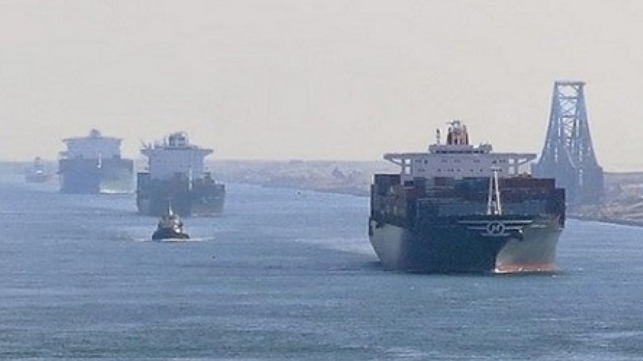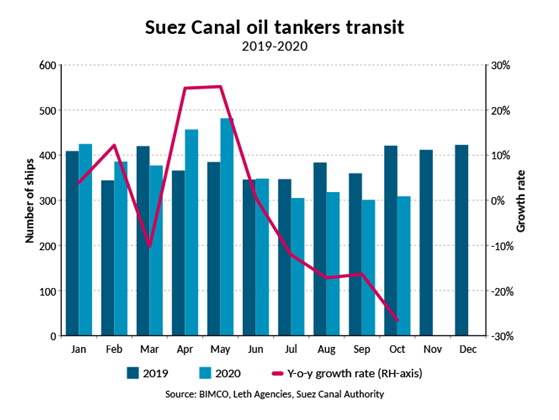Declines in Tanker Traffic Highlighted in BIMCO Report on Suez Canal

In the latest demonstration of the ongoing economic impact of pandemic, BIMCO in its latest analysis is reporting a step decline in oil tanker traffic bound for Europe. The shipping association believes that demand for oil transports has stayed subdued since the April crash in oil prices that fueled high demand for oil tankers.
According to BIMCO’s analysis, the number of oil tankers passing through the Suez Canal in October experienced a sharp decline down 27 percent versus the year earlier. The steepest decline in October was recorded for LR1 tankers (55,000 – 80,000 DWT), which only saw nine transits, representing a 74 percent drop.
“The oil product tanker workhorse, the MR, recorded the smallest drop in transits, down to 49 from 52 in October 2019, accounting for 16 percent of total oil tanker transits,” says Peter Sand, BIMCO’s Chief Shipping Analyst.
The analysis also appears to show that the slowdown in traffic has accelerated during the course of the year. In May 2020, BIMCO reports that a record 100 MR transits took place, representing 21 percent of all oil tanker transits.
Looking at events in that time period, BIMCO reports that the oil price war “worked miracles for freight rates” due to a sharp rise in spot market demand, resulting in a monthly record of 482 oil tanker transits.
“Since May, the oil freight market has gone from fast forward to reverse, as illustrated clearly by the sharp drop in October for Suez Canal transits,” Sand says.

Year to date, a total of 3,708 oil tankers passed through the Suez Canal, representing 76 less oil tanker transits (or a 2% decline) compared to the same period last year according to BIMCO. At the same time, containership transits fell by 14.4 percent (657 less transits).
In contrast, BIMCO reports that dry bulk transits have risen 24.4 percent (822 more transits) in the first 10 months of the year.
